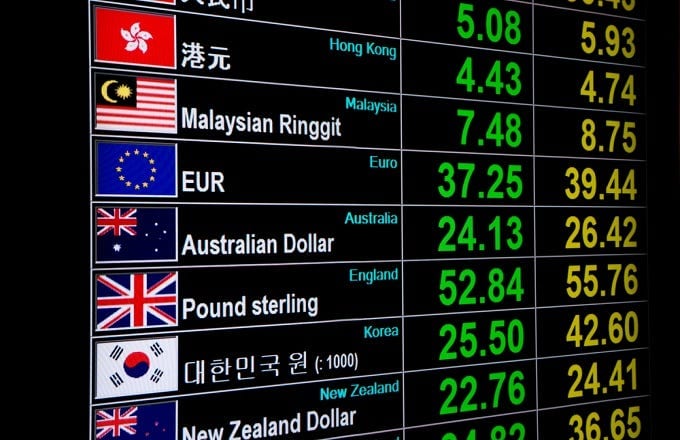I have shared (in past) several lists of things to do for a successful personal finance setup — most of the items in those lists were my learnings over past 15-16yrs.
Today I was talking to someone to get their personal finance in order and remembered all the mistakes I have done and so thought putting them here for others to use:
1. The lure of passive income
A lot of people aim for financial freedom and passive income. Well, it is almost impossible to achieve it unless you are fortunate or have an inheritance or have underestimated your expenses. When I started “investing” back in the early 2000s, one crore corpus was a good standard of retirement. Today it is not even a safe corpus.
Lesson: So, instead of focusing on passive income, the focus should be on active income. Work hard till you are 50 and ensure you hit the point where 80C is taken care by EPF only. The moment you hit this mark, a lot of things will fall into your place.
2. Multiple credit cards and bank accounts
I love credit cards and believe it is the best product in the world if used correctly. However, IF YOU CANNOT MEASURE IT, YOU CANNOT MANAGE IT!
Lesson: Keep the number of bank account, Demat accounts, credit cards, MF schemes, stocks in the portfolio to an ideal number. There is hardly any sense in having more than two bank accounts and 2-3 credit cards.
3. Multiple Demat accounts/ Learning macro and microeconomics
Contrary to point 2, have multiple Demat accounts, however, operate only one Demat account. The rationale for various accounts is to get equity research reports on multiple names.
Lesson: You May be a SIP only person; however, it is critical to understand the economy and sectors. The best place to do it is reading reports. There will be people who will say Indian Equity space sucks and the report quality poor – Don’t listen to them. It takes time to learn and understand economics, and most of the cynical people are the ones who don’t understand these reports
4. Always talk to the shopkeeper/Maids/Cook
There is a multibagger right in front of your eyes. The next Asian Paints, Eicher Motors, HDFC, Havells, Finolex, Page Industries, are in the aisles when you shop.
Lesson: Talk to the small shopkeepers and gauge the mood of the buyers. Also, look into the carts of the people standing in front of you. You will be able to get the next TTK and Asian Paints. It is not tough to spot them. Not for a moment, think all the multi-baggers are gone.
5. Follow a broad set of stocks
While it is essential to own a fewer number of shares and MFs scheme, it is necessary to track a broader set of stocks and MFs. In the long run, it helps to know a sector or a stock well while churning the portfolio
6. You will never miss the bus
I can’t fathom why people crib on missing buying a stock when it was X (today price is 5x). This is the stock market; the end is not near.
Lesson: There is one big “correction” once every decade. This decade had one when Southern European countries were on the verge of collapse and Greece bonds’ yield was 60%. You will always get a chance to enter – whether you are brave to enter during such a time is another matter.
I thought the world was ending in Sep 2008 and then in 2012. But now I have more grey hairs, a fatter waistline, and slightly more relaxed mind although I get scared even now 🤦🏻♂️
7. Spend money on yourself and your loved ones
Back in the mid-2000s, I chased the shit out of RPL and RNRL (few people will remember these stocks), and I made a fortune out of them. I paid up the majority of my education loan using these two stocks, and I reached a point where I started cutting serious corners to save money for extra leverage on day trading. I was stupid. I should have enjoyed more and should have spent that money on a few luxuries (like the trip to Sikkim that I skipped and bought Suzlon at 390 a share 😂)
Lesson: My engineering days are long gone, and that carefree day will not come back. While some of my friends have great memories of those time, I have memories of watching a black screen with quotes of two stocks that don’t exist anymore. Spend money on things that make you happy.
8. Buy a term plan
OMG! Every time I meet someone who doesn’t have a term plan, I pinch myself to stop me from punching him. Yes, it is outrageous not to buy a term plan. Buy one today if you don’t have one. Top it up to meet your current lifestyle if you already have one.
Lesson: Indian insurance sector is one of the most stable and well regulated in the world. Also one of the cheapest. Freeze the rate as early as possible to the maximum amount you can. AND PLEASE DONT EXCEPT for ANY RETURN FROM A TERM PLAN – term plan is for your loved ones and not for you to benefit!
9. Subdued returns? The brochure said Sensex gives 15% return
So your portfolio has a CAGR of only 9% while someone else has a CAGR of 12%. This is the end of the world – let me churn my portfolio. Don’t be this person. 9% over the long term is an excellent return; the days of 15% returns are behind us. Live with this fact.
Lesson: Don’t churn your portfolio at the drop of a hat. There is a whole line of finance that deals with portfolio management, and most of the well-performing portfolios/funds have a low churn rate. Buy quality and stick with them.
10. Dividends
The dividend yield is only 1.8%, why to bother about it. Dividends are more than just the money you get annually. A dividend paying company confirms several things which are critical for long term growth:
a) The company knows how to reward long term shareholders
b) The company is making enough cash to sustain its growth and hence can share profit
c) The company is making real cash and hence is able to share it. The profit is not just accounting magic.
d) The mgmt knows how to navigate short term financing
Lesson: Always give a premium to dividend paying stocks.
11. Buy gold
I know it is not in fashion to buy gold but keep 5% portfolio in gold. This is my personal opinion. Gold has a habit of sleeping for decades and then jumping suddenly in 2-3yrs to sleep again for decades. This is mostly because politicians world over has a habit of screwing the currency once in a while and gold is a hedge against the weaker currency.
Lesson: Buy gold on Diwali every year. Not only does it keep the spouse/parents happy, it will stabilize your net worth. How you wish to buy is up to you. I buy physical gold because I love the feel of it 🙂
12. Damn! He bought HDFC when it was 200 bucks. He is a genius
No, he is not. He is lucky. In personal finance, you can follow all the tips and rules, but in the end, it all boils down to luck. If your years of earning match the year of economy expansion, you will make money. It is as simple as that. Rest all is just garbage.
Yes being knowledgeable and having a plan will be useful and will give you an edge but luck plays a big role. As they say – The more you practice, the luckier you get.
Lesson: Don’t envy people who say he got X stock at 5% of today’s price. I have 3 Suzlon, Welspun, Jai Corp for every TTK and Page. I rarely mention Suzlon and Jai Corp and almost always mention TTK and Page. It is the case with everyone (including Rakesh Jhunjhunwala and other biggies). Just listen, smile and walk away. Some people have luck, you should have a plan. Eventually (after 40yrs), both of you will meet at the same point.
Phew! That’s all for today.







